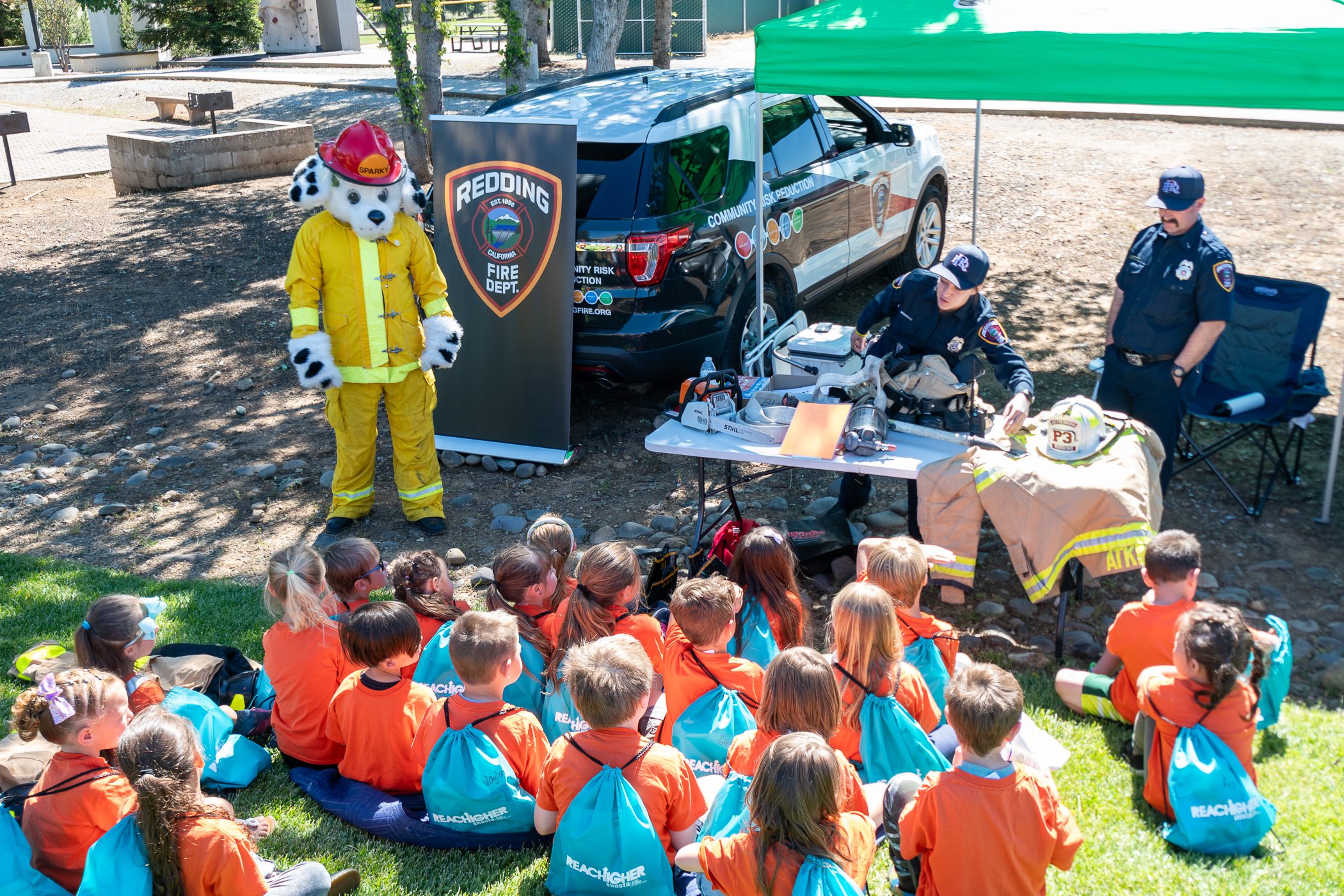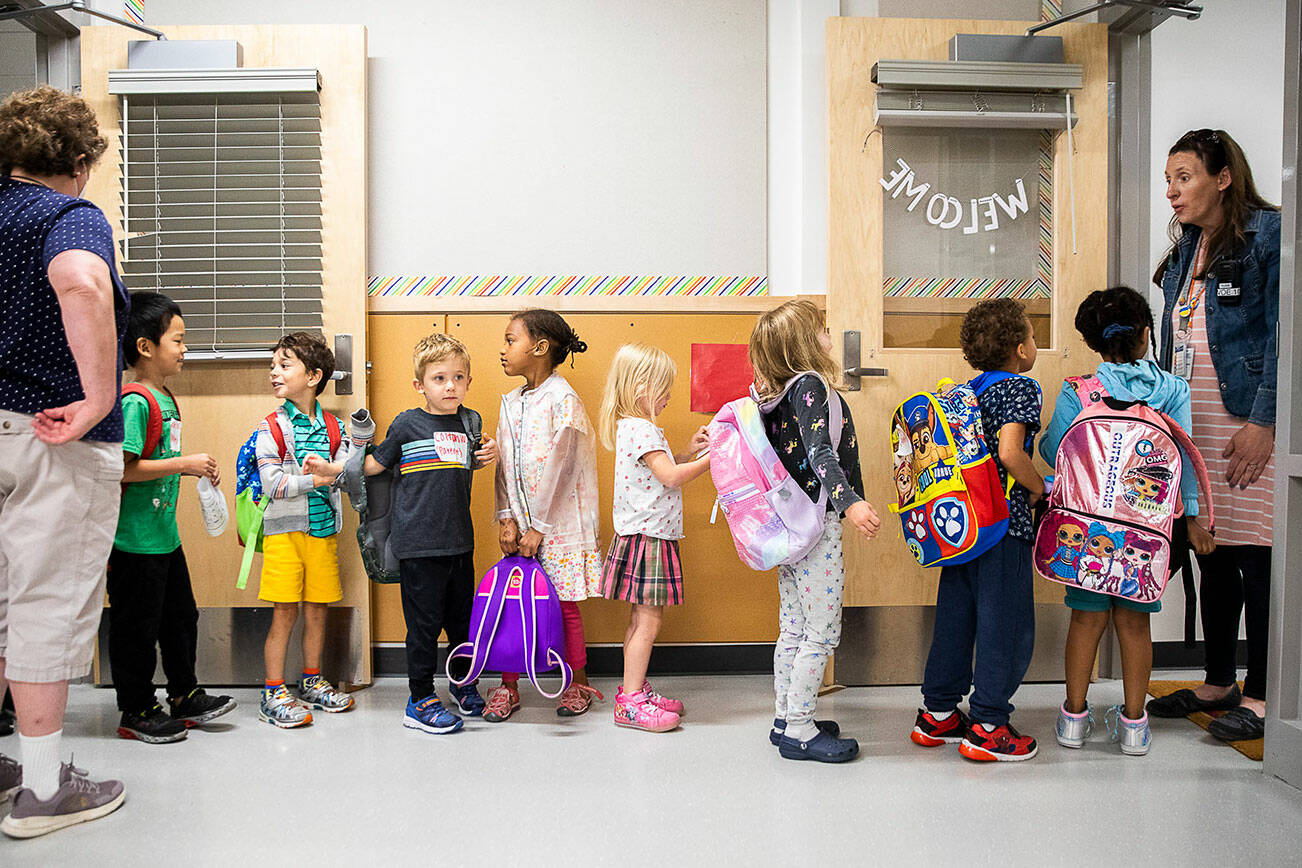Creative methods Private School programs build critical thinking and teamwork
Wiki Article
The Relevance of Interactive Activities in Grade College Education
Interactive activities play a crucial function in elementary school education. They involve students and improve finding out outcomes. Through team projects and hands-on experiments, students experience the material in a useful way. This method caters to varied understanding designs and promotes important skills. The benefits expand past academics. Discovering the deeper effect of these activities reveals their relevance fit young students' futures. What transformations occur when pupils proactively participate?Enhancing Involvement Via Interactive Understanding
Although typical training approaches have their merits, interactive knowing considerably improves trainee engagement in elementary school education and learning. This method urges active involvement, enabling students to submerse themselves in the understanding procedure. By using team activities, hands-on experiments, and technology-driven resources, instructors create a setting where students really feel more connected to the material.Interactive knowing facilitates partnership amongst peers, fostering interaction skills and teamwork. It likewise satisfies diverse understanding styles, making certain that visual, auditory, and kinesthetic students can all thrive. Trainees are extra likely to maintain details when they actively get involved, as opposed to passively getting knowledge.
This vibrant method not only makes finding out delightful but additionally instills a sense of possession in pupils regarding their instructional journey. As they involve with the content, their interest and inspiration to find out increase, laying a strong foundation for future academic success.
Developing Crucial Thinking Abilities
Interactive learning not only improves involvement but likewise acts as a catalyst for establishing critical believing abilities in quality college pupils. Through tasks such as problem-based understanding, debates, and hands-on experiments, students are motivated to assess details, evaluate different perspectives, and create reasoned final thoughts. These interactive experiences require trainees to doubt assumptions, leading them to believe even more deeply concerning various subjects.
Interactive activities frequently existing real-world situations that challenge pupils to apply their expertise artistically. By steering via these difficulties, they learn to determine appropriate information and make educated choices. This process fosters not only individual critical reasoning however likewise motivates students to express their believed processes, enhancing their ability to interact successfully. As a result, interactive knowing atmospheres cultivate a generation of critical thinkers that are much better prepared to deal with complex troubles in their future academic and expert undertakings.
Cultivating Cooperation Amongst Peers
Promoting collaboration among peers is vital in elementary school education and learning, as it boosts team effort and communication abilities. Participating in group tasks helps students build trust fund and respect for each other, laying the groundwork for efficient collaboration. Furthermore, analytical together permits students to gain from each various other and create a cumulative strategy to challenges.Team Effort and Communication Skills
Efficient synergy and communication skills are essential elements of an effective quality institution education and learning. Participating in interactive tasks urges trainees to team up, share ideas, and solve troubles together. Such experiences advertise the advancement of crucial communication capabilities, permitting children to share their thoughts clearly and listen actively to others. With team effort, students discover to value varied point of views, fostering a sense of neighborhood and shared duty. Structured team jobs, whether in academics or creative jobs, enhance peer communications, instructing youngsters just how to discuss functions and fix disputes. These abilities not just contribute to a positive classroom setting but also prepare pupils for future collective endeavors in greater education and learning and the workplace. Overall, synergy and interaction are foundational to holistic development in elementary school.Structure Depend On and Regard
Structure depend on and regard amongst peers serves as a foundation for successful collaboration in grade institution settings. They are much more likely to involve proactively in team activities when students feel valued and valued by their classmates. Interactive activities, such as team projects and cooperative video games, give chances for pupils to learn from one an additional, promoting a feeling of community. This setting urges open communication, enabling pupils to express their concepts and opinions without worry of judgment. As count on develops, trainees end up being extra happy to share responsibilities and support each various other's knowing. Eventually, growing an atmosphere of trust and regard enhances not just scholastic end results however likewise social development, gearing up students with crucial interpersonal skills for their future ventures.Problem-Solving With each other
Collective analytical involves pupils in essential thinking and teamwork, vital abilities for their personal and academic development. When students collaborate to tackle obstacles, they discover to connect successfully, regard varied viewpoints, and take advantage of each various other's staminas. This procedure enhances their capacity to assess issues from different angles and create innovative services. Team tasks, such as science experiments or mathematics difficulties, promote active participation and foster a sense of neighborhood. As pupils team up, they likewise build social skills, learning to discuss and jeopardize, which are vital for future communications. Inevitably, analytical together cultivates an encouraging knowing atmosphere, empowering students to take possession of their education while preparing them for collective ventures beyond the class.Motivating Creativity and Development
Motivating creativity and development in grade college education and learning can be substantially enhanced with hands-on learning experiences. These activities allow trainees to engage directly with products and principles, promoting imaginative thinking. Additionally, collective group projects can boost diverse ideas and options, further nurturing an innovative environment.Hands-On Understanding Knowledge
A wide range of hands-on knowing experiences greatly improves imagination and advancement in quality college education. Involving pupils in practical activities enables them to use theoretical understanding in real-world contexts, cultivating much deeper understanding. By manipulating devices and products, youngsters establish important analytical abilities and his explanation discover to assume outside package. These experiences influence interest and inspire students to explore their rate of interests additionally. In addition, hands-on tasks can link numerous subjects, linking science, art, and math in purposeful means. This interdisciplinary technique motivates pupils to see links and believe artistically. Eventually, hands-on understanding experiences support a generation of pioneers, furnishing them with the abilities and confidence required to deal with future obstacles and contribute to culture in special ways.Collaborative Team Projects
Hands-on knowing experiences normally result in the incorporation of collective team tasks, which play a vital role in cultivating imagination and development in elementary school education. These tasks encourage students to work together, sharing ideas and viewpoints, which boosts problem-solving skills and critical thinking. Through cooperation, students find out to communicate properly and regard diverse point of views, important abilities for their future. Furthermore, team tasks provide chances for pupils to experiment with various roles, enhancing their adaptability and confidence. Involving in this participating environment enables them to explore their imagination, pressing the boundaries of traditional learning. Eventually, collaborative group tasks not just enrich the instructional experience yet additionally prepare trainees for real-world difficulties that require synergy and innovative thinking.Building Confidence and Independence
As students take part in interactive tasks, they typically discover possibilities to develop confidence and independence. These tasks, whether they include hands-on jobs, role-playing, or problem-solving jobs, urge students to take campaign and reveal their ideas honestly. By taking part in such experiences, students discover to trust their capabilities and make decisions without counting entirely on support from peers or teachers.Furthermore, interactive activities foster a sense of ownership over understanding. When students deal with obstacles collaboratively or separately, they create essential assuming skills and durability. This process not just enhances their understanding of the subject matter yet likewise empowers them to take dangers in their understanding trip.
As they browse numerous interactive situations, trainees progressively shed their self-doubt, leading the means for enhanced self-worth - Private Grade School Peoria. Eventually, these tasks play a crucial role in nurturing positive and independent students, equipped to face future academic and individual difficulties
Developing a Positive Classroom Atmosphere
While fostering a positive class setting is necessary for reliable learning, it needs intentional effort from teachers to produce a space where students really feel safe, revered, and involved. A favorable environment encourages collaboration, enabling pupils to express themselves without fear of judgment.Educators can achieve this by establishing clear assumptions, advertising mutual respect, and recognizing individual contributions. Including interactive tasks additionally improves involvement, making learning a lot more pleasurable and dynamic.
Furthermore, a nurturing environment sustains social-emotional advancement, as students discover to browse connections and fix disputes. Teachers play a vital role in modeling favorable habits and reinforcing a society of generosity and inclusivity.
Frequently Asked Inquiries

Exactly How Can Parents Support Interactive Understanding in the house?
Moms and dads can sustain interactive discovering at home by giving appealing products, motivating hands-on jobs, incorporating instructional video games, promoting discussions, and developing a nurturing setting that advertises curiosity and expedition in their kids's learning experiences. (Kindergarten)What Kinds of Interactive Activities Are Most Reliable?
Hands-on jobs, collective video games, role-playing situations, and educational modern technology applications are amongst the most reliable interactive activities. These involve trainees, enhance vital thinking abilities, and discover this promote synergy, eventually fostering a deeper understanding of numerous subjects.Exactly How Do Interactive Activities Satisfy Different Discovering Styles?
Interactive tasks engage aesthetic, acoustic, and kinesthetic students by including diverse approaches. These activities promote understanding with hands-on experiences, collaborative discussions, and visual aids, enabling pupils to absorb info according to their preferred knowing style.What Are the Prices Connected With Applying Interactive Tasks?

Carrying out interactive activities sustains prices such as materials, training for instructors, modern technology upgrades, and prospective center alterations. Spending plan constraints can likewise influence the regularity and range of activities provided to pupils in instructional setups.
visit the website
Just How Can Teachers Evaluate the Influence of Interactive Understanding?
Teachers can analyze the impact of interactive knowing with monitorings, student comments, efficiency metrics, and relative evaluation of test scores prior to and after implementation, making sure a comprehensive understanding of engagement and knowledge retention enhancements.Via tasks such as problem-based understanding, debates, and hands-on experiments, pupils are encouraged to analyze details, review different perspectives, and formulate reasoned verdicts. Interactive tasks often present real-world situations that challenge students to use their understanding creatively. Engaging in interactive tasks motivates students to team up, share concepts, and resolve problems with each other. Interactive tasks, such as team projects and cooperative video games, provide chances for students to discover from one an additional, promoting a feeling of community. As trainees involve in interactive activities, they typically discover possibilities to develop confidence and self-reliance.
Report this wiki page